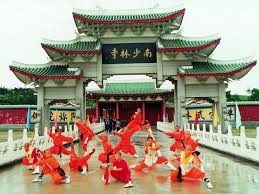Following the recent sex scandal of Shaolin Temple Abbot Shi Yongxin, more Buddhist monks in China are being accused of being fakes and profiting from conning followers by presiding over temples and collecting substantial fees for Buddhist ceremonies.
As discussions about Shi Yongxin became more commonplace, Shi Zhitong, the abbot of two temples in Cangnan County, Zhejiang Province in East China, was accused by a woman surnamed Wang on her Sina Weibo account, claiming to be the ex-girlfriend of the abbot's son.
According to Wang's Weibo, "although he became a monk at 14, he has a wife. He loves beef instead of vegetables and drives luxury cars such as Land Rover and Audi A8. When he is traveling, he stays in five-star hotels . . ."
"Shi has many houses and stores in Shanghai, Hangzhou and Wenzhou," Wang told a newspaper. She added that he has many friends in business, political and cultural circles.
Wang is reportedly the ex-girlfriend of Shi's son. The couple fought after she gave birth to a baby.
Shi denied Huang's accusation, saying that he doesn't eat meat, and that he never transferred the temple's funds to his family.
"I became a monk at the age of 14 and got married in 1984. After that, I had been cultivating myself and got divorced in 2014," Shi said.
Qian Ming (pseudonym), a Hangzhou-based lawyer, has also been accusing some monks in an unnamed city in Zhejiang Province of being fake Buddhists and conducting underground businesses.
"After I exposed fake Buddhists, they have been taking revenge against me," he said.
According to Qian, the temple could earn more than 3 million yuan ($483,000) annually from donations and conducting Buddhist ceremonies. Without proper financial supervision, the temple's funds make their way to the allegedly fake monks' personal accounts.
"The monks came from Henan Province. They neither had religious or government certificates nor were registered by the local Buddhist association and religious affairs department," said Qian.
According to an interview of Shaolin monk Shi Decheng, fake monks have been pervasive all over China, and even in other countries, since Shaolin martial arts schools don their teachers and pupils in robes and shaved heads, despite them not even being run by monks or even Buddhists.



























